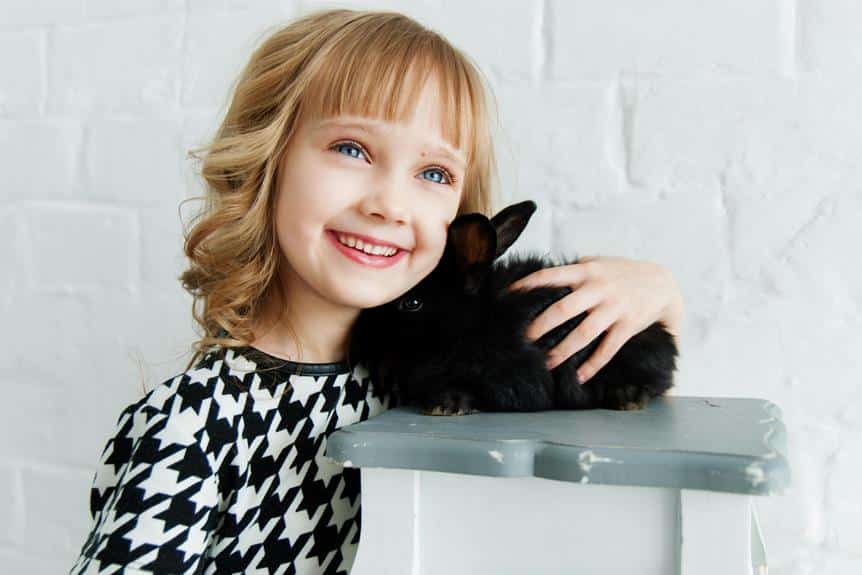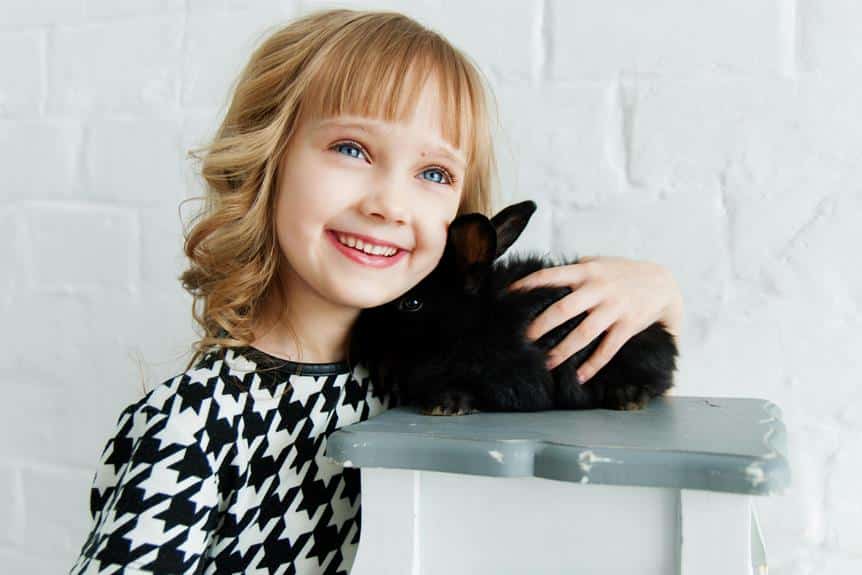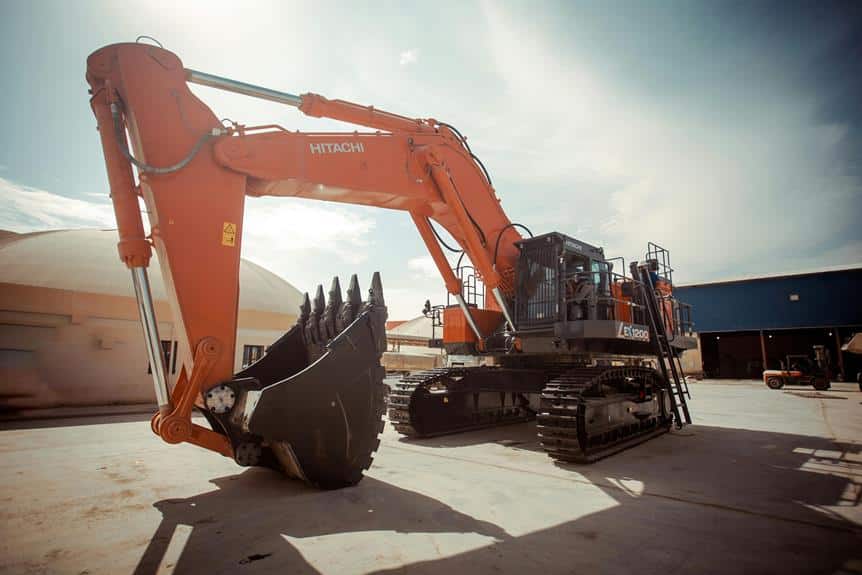Table of Contents
Are your rabbit’s teeth growing like weeds, causing potential health issues? Don’t let them nibble away at your furry friend’s well-being.
It’s time to nip this problem in the bud and put a smile back on your bunny’s face. But how can you prevent overgrown rabbit teeth?
Stay tuned as we reveal the secrets to maintaining a healthy dental regimen for your hoppy companion.
Key Takeaways
- Providing a balanced diet rich in fiber, with hay and fresh vegetables as the main components, helps prevent overgrown rabbit teeth.
- Offering chew toys made of safe materials, such as untreated wood or woven grass, can help maintain healthy teeth.
- Regular veterinary dental check-ups allow for early detection of dental issues and preventive care recommendations.
- Promoting natural wear and tear through safe chewing materials, like untreated wooden blocks or apple tree branches, helps keep rabbit teeth in good condition.
Understanding Rabbit Teeth Anatomy
To understand how to prevent overgrown rabbit teeth, it’s crucial to have a clear understanding of rabbit teeth anatomy. Rabbit teeth are unique and constantly growing, which is known as hypsodont teeth growth. They’ve two pairs of incisors, one above and one below, and these incisors are what rabbits primarily use for chewing and biting. The incisors have a hard enamel layer on the front surface, which helps them withstand constant wear and tear.
Rabbit teeth growth is necessary because their diet consists mainly of fibrous vegetation. The constant chewing and grinding help wear down the teeth and maintain the proper length. However, if the teeth don’t wear down properly, they can become overgrown, leading to various dental problems.
Signs of dental problems in rabbits include difficulty eating, drooling, weight loss, and a decrease in appetite. You may also notice your rabbit pawing at its mouth or showing signs of pain. If you observe any of these signs, it’s essential to consult a veterinarian who specializes in rabbit dental care.
Understanding rabbit teeth anatomy is the first step in preventing overgrown teeth. By providing a proper diet, regular dental check-ups, and appropriate chew toys, you can help maintain your rabbit’s oral health and prevent dental issues.
Providing a Balanced Diet
A balanced diet is essential for preventing overgrown rabbit teeth. Providing your rabbit with a diet that meets all its nutritional needs is crucial to maintaining dental hygiene. Here are some important considerations when it comes to your rabbit’s diet:
- Hay: Make sure your rabbit has access to unlimited high-quality hay. Hay not only provides essential fiber but also helps wear down their teeth as they chew.
- Fresh vegetables: Include a variety of fresh vegetables in your rabbit’s diet. Leafy greens like kale, spinach, and romaine lettuce are great options. These vegetables not only provide important nutrients but also require more chewing, promoting dental health.
- Limited fruits: While fruits can be a tasty treat for your rabbit, they should be given in moderation due to their high sugar content. Stick to small portions of fruits like apples, pears, and berries.
- Pellets: Choose a high-quality rabbit pellet that’s specifically formulated to meet your rabbit’s nutritional needs. Pellets should make up a small portion of their diet, with the majority consisting of hay and fresh vegetables.
Offering Chew Toys and Hay
Chew toys and hay are essential for promoting dental health in rabbits. Dental health awareness is crucial for preventing overgrown teeth in rabbits, as it can lead to pain, discomfort, and difficulty in eating. Offering chew toys and hay is an effective way to prevent dental issues in rabbits.
Chew toys serve as an alternative dental care method for rabbits. Rabbits have a natural instinct to chew, and providing them with appropriate chew toys can help maintain healthy teeth. Choose toys made of safe, non-toxic materials such as untreated wood or woven grass. These toys will give rabbits something to gnaw on, helping to wear down their teeth naturally.
Hay is another important component of a rabbit’s diet that contributes to dental health. It’s high in fiber and requires extensive chewing, which helps to grind down their teeth. Make sure to provide good quality hay, such as Timothy or orchard grass, as it promotes proper digestion and keeps the teeth in check.
Regular Veterinary Dental Check-ups
Regular veterinary dental check-ups are essential for maintaining the dental health of rabbits and preventing the development of overgrown teeth. Just like humans, rabbits can experience dental problems that can lead to discomfort, pain, and difficulty eating. By scheduling regular veterinary dental check-ups, you can ensure that your rabbit’s teeth are properly cared for and any potential issues are addressed in a timely manner.
Here are four reasons why regular veterinary dental check-ups are important for preventing dental problems and maintaining the overall health of your rabbit:
- Early detection: Veterinarians have the expertise to identify dental issues in their early stages before they become severe. Regular check-ups allow for the early detection of dental problems such as malocclusion or tooth spurs, which can be treated promptly.
- Professional cleaning: During a dental check-up, a veterinarian can perform a thorough cleaning of your rabbit’s teeth. This helps to remove any plaque or tartar buildup that can lead to dental disease if left untreated.
- Oral health assessment: An examination by a veterinarian includes a comprehensive assessment of your rabbit’s oral health. This allows for the identification of any abnormalities or potential issues that may require further treatment.
- Preventive care: Regular dental check-ups provide an opportunity for veterinarians to offer preventive care recommendations. This may include advice on appropriate diet, chew toys, and oral hygiene practices to maintain your rabbit’s dental health.
Promoting Natural Wear and Tear
To promote natural wear and tear of your rabbit’s teeth, it’s important to provide them with appropriate chewing materials. Chewing is a natural behavior for rabbits and it helps to keep their teeth in good condition. This is crucial in preventing dental decay and managing dental pain.
When it comes to choosing chewing materials for your rabbit, opt for items that are safe and designed specifically for rabbits. Avoid giving them hard materials that could potentially damage their teeth. Instead, provide them with safe options like untreated wooden blocks, apple tree branches, or commercially available chew toys made from safe materials. These materials have a rough texture that helps to naturally wear down your rabbit’s teeth while also providing mental stimulation.
It is important to regularly check the chewing materials to ensure they’re in good condition and free from any sharp edges or splinters that could harm your rabbit’s mouth. Replace them if they become worn out or damaged.
Monitoring and Addressing Dental Issues Promptly
Promptly monitoring and addressing dental issues in rabbits is crucial for maintaining their oral health and preventing potential complications. Rabbits have unique dental anatomy, with continuously growing teeth that can lead to dental problems if not properly managed.
To ensure your rabbit’s dental hygiene, here are four important steps to follow:
- Regularly check your rabbit’s teeth: By examining your rabbit’s teeth regularly, you can identify any signs of dental problems early on. Look for overgrown teeth, uneven wear, or any abnormal growths.
- Watch out for behavioral changes: Dental problems can cause discomfort and pain, leading to changes in your rabbit’s behavior. If you notice a decrease in appetite, difficulty eating, drooling, or weight loss, it may indicate dental issues that need prompt attention.
- Provide appropriate chew toys: Chewing is essential for wearing down a rabbit’s teeth naturally. Supplying your rabbit with appropriate chew toys, such as untreated wooden blocks or safe, hard vegetables, can help maintain dental health.
- Seek veterinary assistance: If you suspect any dental problems or notice any abnormalities in your rabbit’s teeth, it’s crucial to consult a veterinarian experienced in rabbit dentistry. They can perform a thorough examination, address any issues, and provide guidance on dental care.



